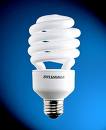`Don't buy green' argument misses key point

Separate articles on Slate and in The Washington Post recently argued that buying green is ineffective and often carries unintended behavioral consequences.
The one on Slate by Rebecca Tuhus-Dubrow headlined "Buy Local, Act Evil" cites a University of Toronto study that suggests people who buy green are more likely cut moral corners elsewhere. Buying green is tantamount to a free pass for commensurate bad behavior in other areas of their lives.

"People act less altruistically and are more likely to cheat and steal after purchasing green products as opposed to conventional products," according to the study's abstract. Now I understand why I have the urge to cut someone off in traffic on the trip home from Home Depot after buying compact florescent light bulbs.
The Washington Post article makes a bit more sense. Mike Tidwell, executive director of the Climate Action Network, advocates making December green free so we focus more on large scale action at the national level. The small stuff is little more than a fad, he says.
He makes good sense, but I don't agree entirely.
The reason I have put in compact florescent lights, insulated my hot water pipes and plugged air leaks is to cut heating costs. I don't wear these achievements and good deeds on my sleeve. I have to kids in college and wherever I can save, I will.
Secondly, I am going to front upward of $30k (put another way, two thirds of one year of college tuition) for installing solar panels on my house to generate at least half my electricity. Believe me when I say I am closely studying all applicable rebates, tax credits and ROI (seven year payback as presently calculated). Using Tuhus-Dubrow's logic, I should be able rationalize a gas station hold-up after this rather large small act of greenness.
It's all well and good that such a project benefits the environment, but my primary motivations are 1) economic, and 2) establishing a degree of independence from a utility.
Both articles are well done and worth reading, particularly Tidwell's. His is a call to action to move President Obama who understands the moral and economic imperative of environmentalism. But he needs to stop acting wimpy and really move on issues like demanding a carbon bill than mandates 350 parts per million.
Tidwell uses the progress on civil rights in the 60s as effective example of how a president can lead.
"Whenever key bills on housing, voting and employment stalled, [then President Lydon Johnson] gave individual members of congress the famous "Johnson treatment." He charmed. He pleaded. He threatened. He led, in other words. In person, and from the front," Tidwell writes.
I agree that Obama is too consensus driven and cautious. Leave obstructionist Republicans and Democrats behind if they can't be convinced. That said, I see signs of progress with tens of billions of federal dollars going into smart grid and renewable energy projects.
I think we have to do both - buy green and local stuff along with taking aggressive action at the federal level. At the same time, we need to curb those bad impulses unleashed by buying rolls of insulation.
Happy New Year and please follow me on Twitter.
This post was originally published on Smartplanet.com